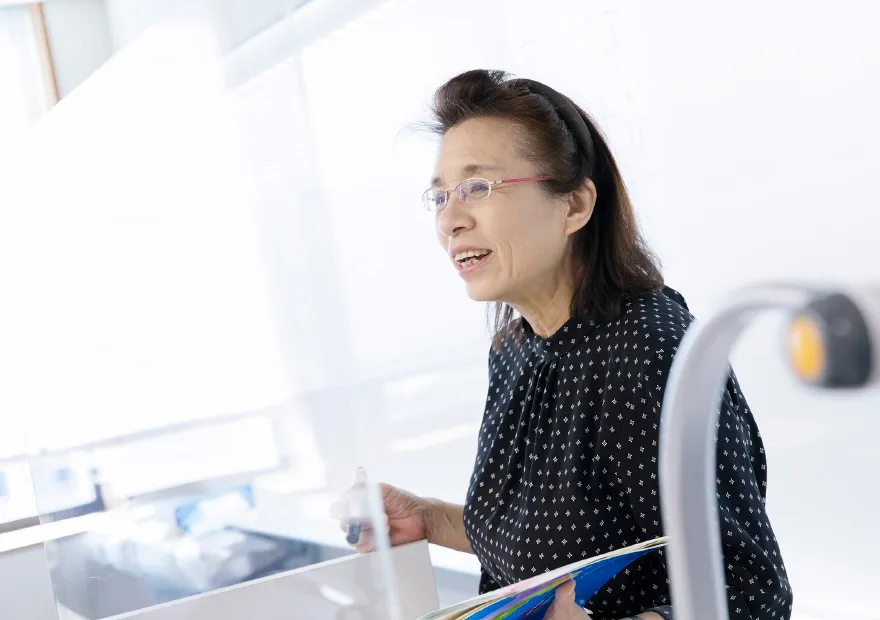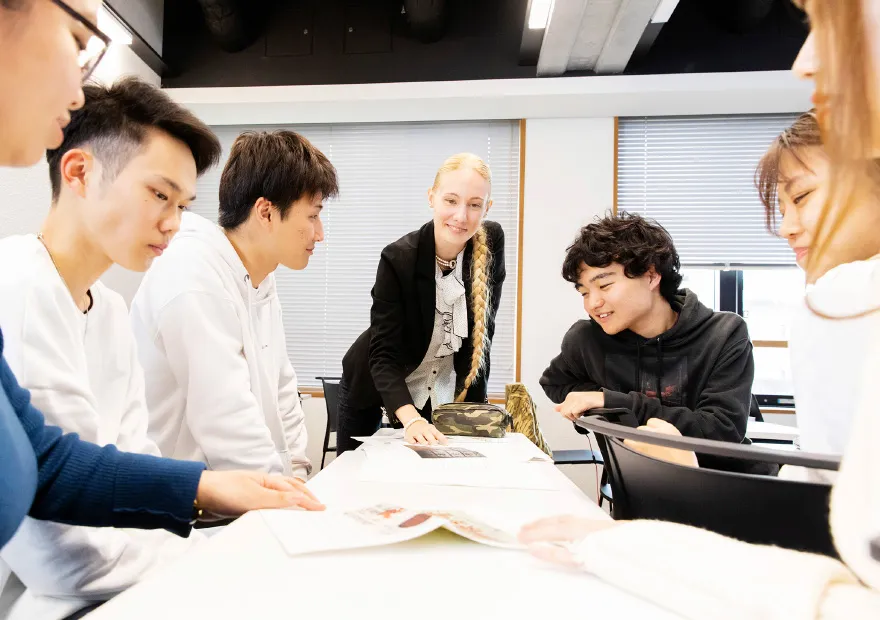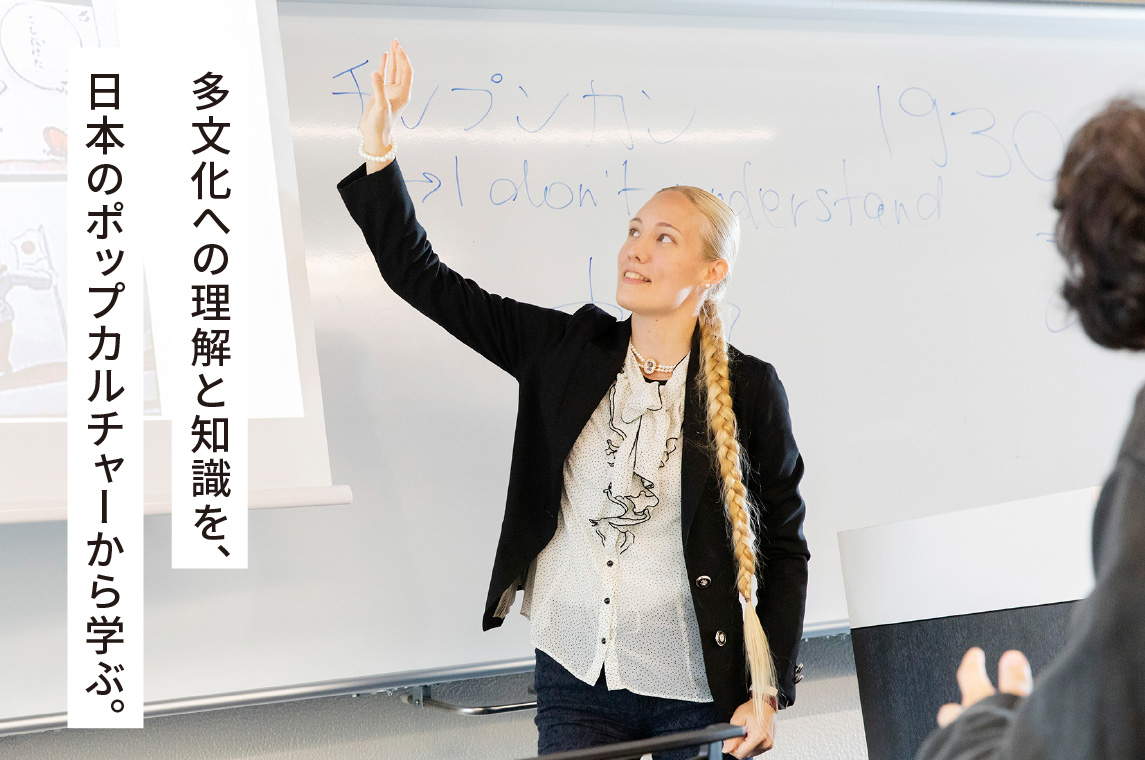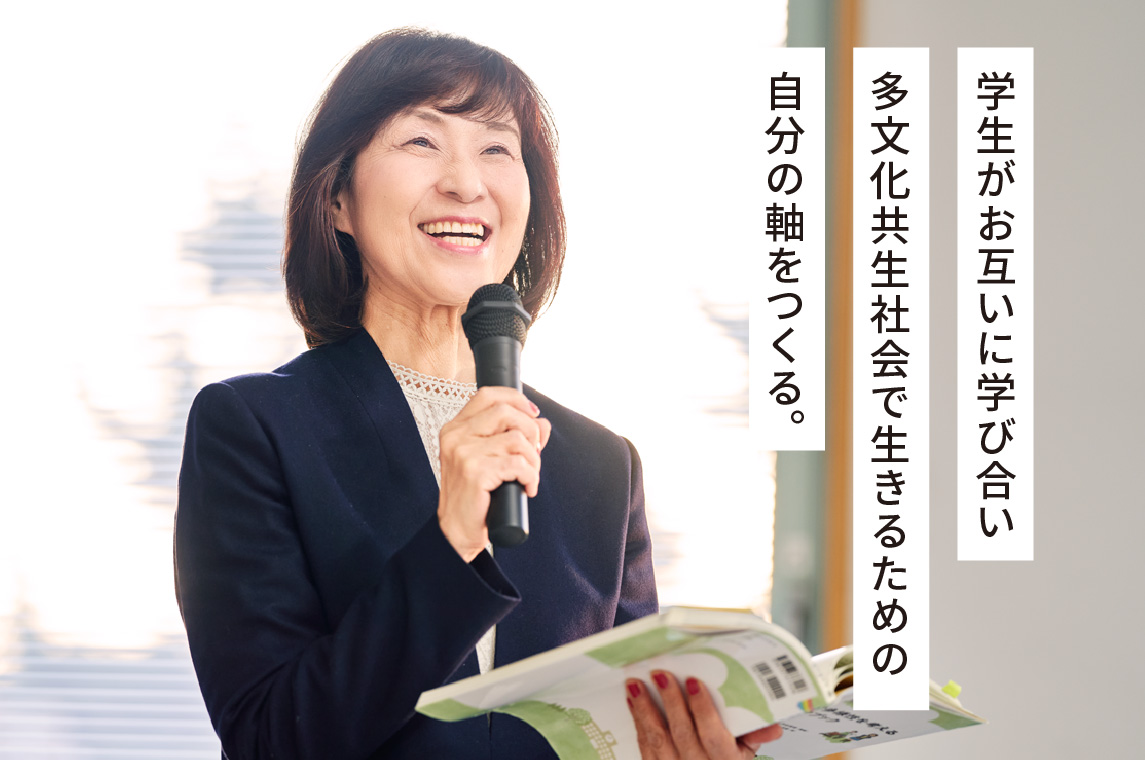

History, culture and language
Through learning,
Create Multicultural Symbiosis society.
This major will advance your studies while keeping in mind the achievement of SDGs such as "4. Quality education for all," "10. Reduce inequalities," and "11. Sustainable cities and towns." You will acquire practical skills that can be used to actually promote local communities through learning about history, culture, and language.
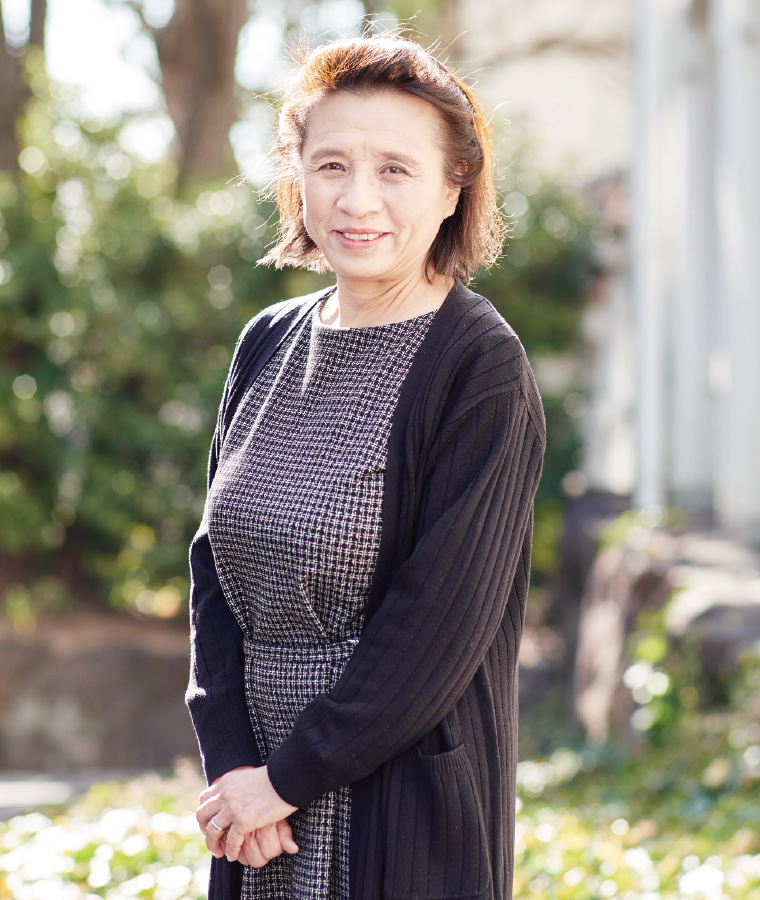
Japan is a country where many cultures coexist.
Each other
The ability to understand and respect history and culture.
Our lives are connected to many different countries and change every day. In the midst of this change, we will gain a deeper understanding of the history and culture of each country and think about what we can do to build a society in which everyone can live prosperously. In addition to learning and gaining knowledge about our own and other countries' cultures from an international perspective, we will also acquire international intelligence and sensibility, and above all, the ability to communicate and negotiate in order to make our own claims while understanding and respecting the other person's culture.
Key points for studying this major
-
- 1Future contributions to the local community
Basic education
Wear it. - For current and future members of society who live and work with people of diverse origins, understanding and knowledge of multiple cultures is essential. We will learn about the history, culture, and language of each region, which is the basis for that.
- 1Future contributions to the local community
-
- 2With a wealth of knowledge
Have experience
Unique teachers. - Our faculty members have extensive experience in conducting research into Japanese and Asian cultures. For example, they provide an easy-to-understand approach to learning about diverse cultures through interesting themes such as the Ainu people and Chinese culture.
- 2With a wealth of knowledge
-
- 3Knowledge to wisdom, imagination to
One step towards making it a policy
In-depth learning. - We believe that it is important to put what you have learned into practice in society. We enrich your learning "beyond what you have learned" through discussions between faculty and students, field studies on-site, and project proposals.
- 3Knowledge to wisdom, imagination to
Four-year learning process
-
- First grade
- Students will consider the meaning of Multicultural Symbiosis and conduct basic studies for it.
-
- Second Year
- You will learn about domestic and international circumstances and look at issues and success stories.
-
- Third grade
- We narrow down our research topic by collecting materials for professional discussion and conducting field surveys.
-
- 4th grade
- Students will deepen their research topic through investigation and discussion, and compile it into a graduation thesis.

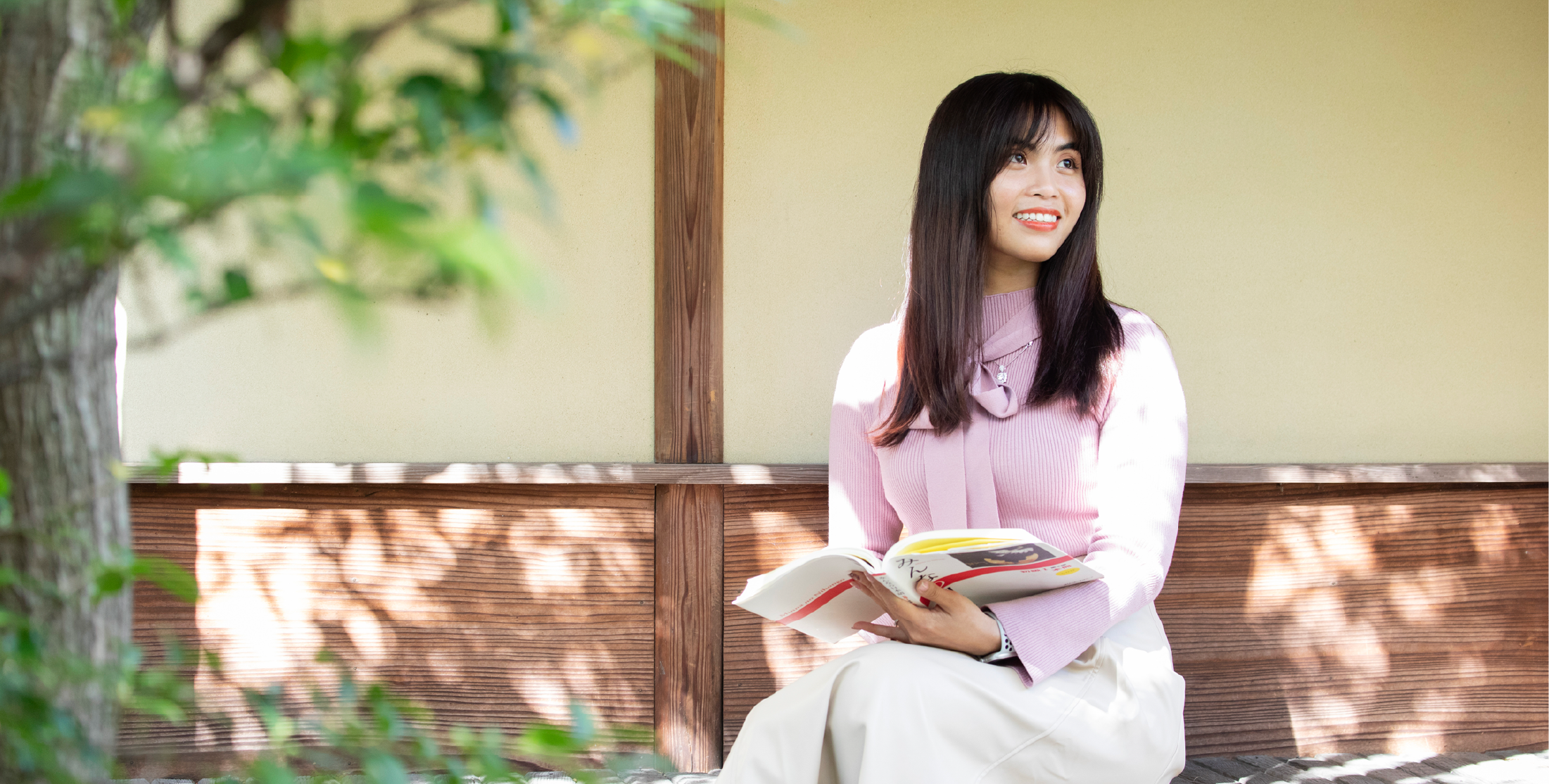
Through specialized classes,
Language ability
More confidence in pronunciation
So that you can have it.
I learned Japanese as a foreign language while studying at a university in Vietnam, and after thinking that "Japanese pronunciation is cute," I decided to enter Otemae University to study Japanese linguistics in earnest. I enjoy all the classes related to Japanese language education at this faculty, but I am particularly interested in the subject of Japanese phonetics and phonology. As a foreigner studying Japanese, I believe that in order to be able to speak like a Japanese person, I must first understand the basics of sound. I feel that I have grown as a person over the past two years, and I would like to continue on to graduate school and study phonetics.
Dinh Tei Ngoc AinhMr. Miss.
Graduated from Le Quy Don High School in Vietnam
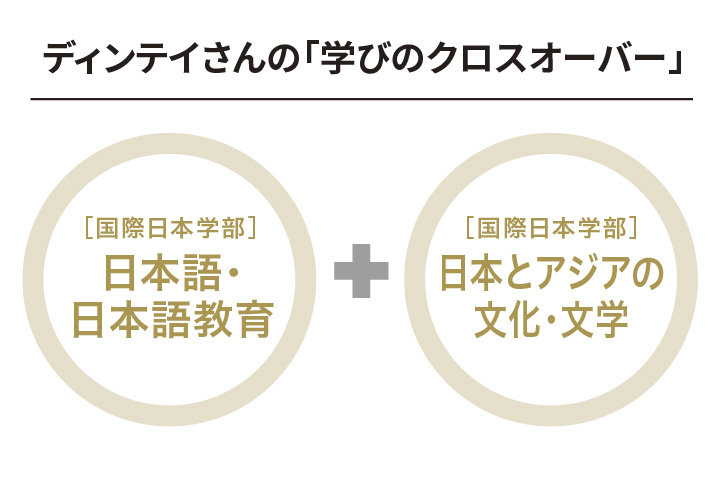

Pick Up Classes
By research topic
- ● The development of food "multiculturalism" in Asia
- ● Diversity of open port cities in Asia
- ● Globalizing local culture and people's lives
- The importance of bears and bear rituals to the Ainu people
- ● Changes in the image of Emishi
International Exchange and Cooperation Student Staff
"Student Group Team Colors"
More information here!
Pick up here!
List of majors availableMajor subjects
Course names have been updated to make them easier to understand
- Japanese Studies and Asian Studies Course
- International Coexistence Course

